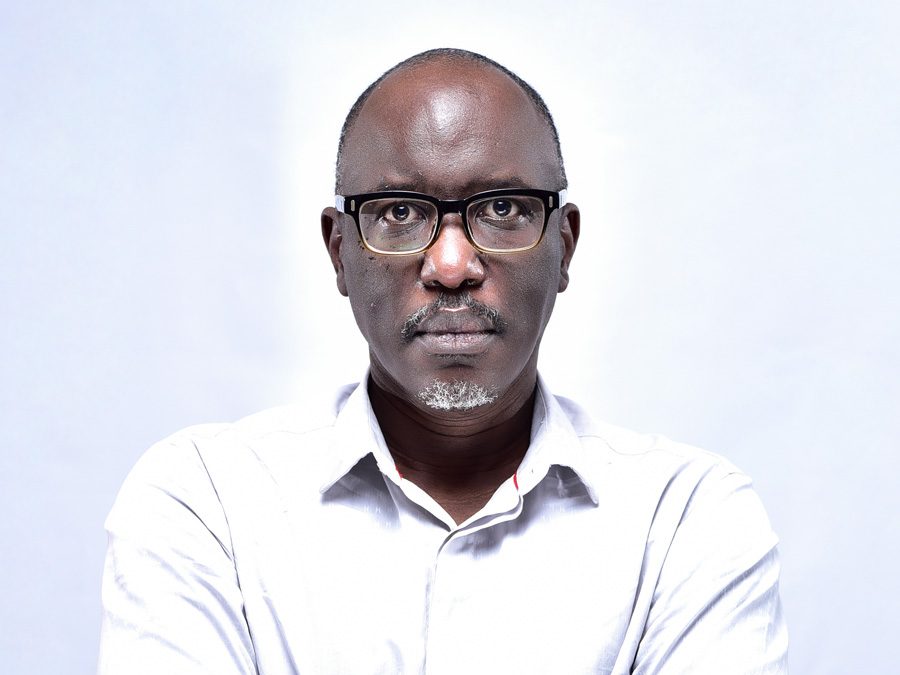“Shelly and jazz and leider and love, and day returns too soon. We’ll get drunk amongst the roses in the valley of the moon.”
I don’t even know what that means, if anything, but I like how it sounds, so it is in my head. It’s been in there for years. I have gigabytes of quotes from dead white men poetry, movie lines, song lyrics, snarky TV quips, brooding superhero monologues, cartoon catchphrases, raps and proverbs picked out from West African novels. My inner vocabulary is not just words. When I talk to myself I don’t use just words. When I am gaunt and exhausted in the morning after another bout of insomnia, I don’t tell the mirror, “You look like crap.” I say, “A clown’s smirk in the skull of a baboon.”
Those evenings after Kampala has been hot and hectic all day and the hubbub is finally receding, I don’t say, “At last. Relief.” I say “Escuchela. Los Cidad Respirando.” When I have been drinking with my friends and the love is strong and the laughter is heavy, I don’t say this moment is “nice”, I say it’s “felt in the blood.” And it’s never five-thirty am for me. It’s always “in the lonely cool before dawn”.
I like pretty words. And I define my world with them.
I got a job as a writer about twenty years ago. The biggest newspaper in town gave me a column that they would publish once a week.
There was no theme tied to the column. They told me I could write about anything at all, which meant I didn’t have to write about anything at all, so that is what I proceeded to do.

I wrote very well about nothing at all. I did not just deploy talent like some of my peers: I deployed skill. I studied heroic writers and learned their techniques. Like an acolyte in a shaolin monastery, I trained and mastered styles. I did simile drills and metaphor practise during taxi rides to work. I ran alliterations in my mind while waiting in line at the ATM. I bulked up my vocabulary like a wrestler on a steroid diet. I made myself agile, fast, and strong.
In the first years, before I learned how to actually be funny, this was my trick: I learned it from PG Wodehouse. You take something simple, something mundane, and you say it in a needlessly over-elaborate way, and from the incongruity of tone was derived the humour. I first got the idea from the famous case of the Curate’s Egg.
See, a clergyman was visiting his flock in some part of rural England when he was served a boiled egg that had gone bad. His host noticed the dark patch on the egg and said, “Curate, is that egg bad?” The curate, being stereotypically English, this being a humour story and humour back then relying on stereotypes, did not want to offend by seeming to complain about the food, so he replied,
“Not at all. In fact, parts of it are excellent.”
That was my shtick. In place of substance, I had that. A glittering lack of gold. Sound and fury that signified nothing but was nice to look at.
I was never as daring with what I wrote as I was in how I wrote it. The manual says there are two ways of being funny. One is to say something unexpected, and the other is to say exactly what people already know is funny. They will laugh because they have heard their cue.
When I look back, that is what I cringe over most– the casual homophobia, the cloying trend-jacking, the lack of sophistication. It wasn’t that I was shallow, it was that I didn’t trust my readers to dive with me beyond familiar waters. Here is another maxim from the manual: If you want people to think your writing is intelligent, write what they already think. Reiterate their preconceptions, opinions and prejudices, but articulate them better than they would. They will hoist you above their shoulders. But challenge them, and you will be trampled underfoot.
Of course this is not true. Good readers have open minds and closed-minded people don’t read that much or that well. But I didn’t know that.
I was having fun, though. And I was getting famous. I had not expected that last part, but the admiration of people you don’t know can be addictive. You should not care what people you never meet think of you, but if what they think is that you are brilliant, then you find yourself, despite yourself, invested in their opinion.
The column is over now. I walked away. I didn’t know why at the time. I thought it was because newsprint was dead and you can’t be a famous newspaper columnist when no one reads newspapers. But now I realise that it was because I had outgrown easy jokes and “light” writing. That is what they called my category of writing: Light-hearted. I was middle aged when I left. That is the adolescence of writers. The great ones? They probably spent their whole lives writing but only wrote the great stuff in their forties.
I was outgrowing the light heart. I was putting on weight. It was time to go.
The difference between bad writing and good writing is skill, and I nailed that bit, but the difference between good writing and great writing is sincerity. Great writing is about taking the pure, raw feeling in your soul and transmitting it to another person. Good writing makes people laugh, great writing makes people cry. Good writing makes people know, great writing makes people understand. Good writing is clever. Great writing is transcendent.
Great writing takes the thing that is in your soul, down there, and draws it out, and wraps it in not just words — words are not enough — wraps it in the right words, in the right way. I don’t just mean the technicals like the punctuations and syntax, I mean the rhythm, the musicality, the harmony between what is said and what is implied, what is apparent and what is underlying.
Great writing transforms pure feeling into a form in which it can be transferred from one soul to another. Your reader sees this and it resonates with the part within them that is the same as what you felt, because they have felt it too, and now they have found had a way to express it, or to understand it because you have given them the words that make it possible to finally say it, even if only to themselves. And this process is repeated for everyone who reads those words– they get it and now they are equipped to bear it. That is what great writing does. It helps humans understand themselves, and it helps us understand each other. Being able to do that, having the skills to do that, is more important than fame and money.
I knew how to write. But I did not know how to write honestly. I did not know how to tell you the truth.
I had never learned that one essential trick. The one where Maya Angelou cuts her hand open and bleeds onto pages. That one where J. Cole bares his soul and you see how it is just like yours. That thing that got me started in the first place, that thing of offering your reader the words to give their feelings names so they can finally greet them, talk to them, listen to them, hear and know them. I had no idea how to do that.
I have been learning, though. I think my time showing off in the newspapers taught me how to be taught. I learned how to learn and now I study the masters with a new lesson in my sights. I am learning how to use my skill to write what is true, and what is honest and, not that I need to underscore this, you already get it, but what is authentic.
Oh, before I go: The quotes I started with? I didn’t attribute them. I think you should google them. You will like what you find. Go ahead.

